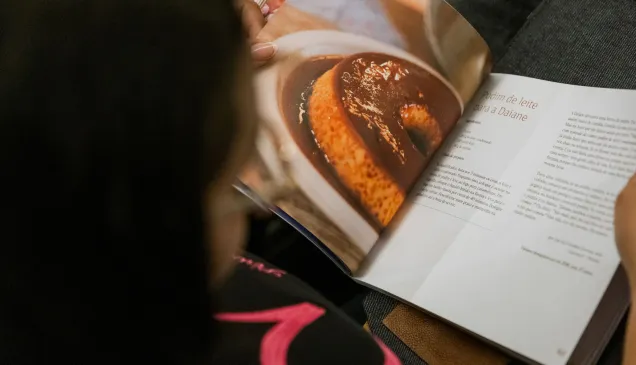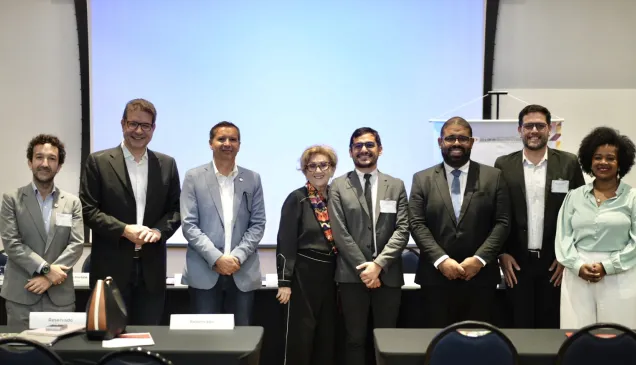S.M. can find any book in the prison library in a matter of seconds. He is an inmate at the Irmã Imelda Lima Pontes Prison in the metropolitan area of Fortaleza and ran the library there until last week, when he was transferred to a different job requiring more physical strength. The young man was delighted to receive the new books about Nelson Mandela, which will soon be available to all the inmates.
Brazil: A story about Mandela
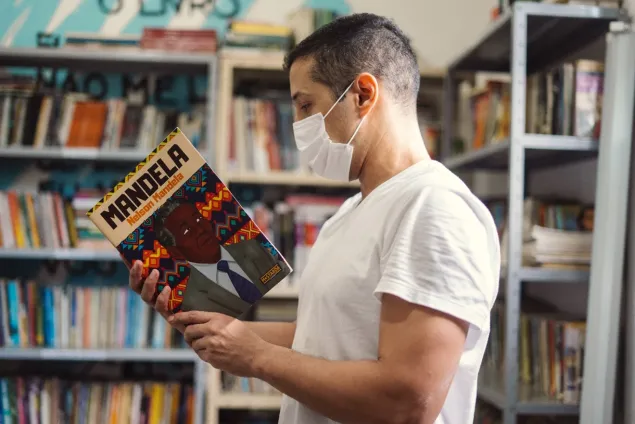
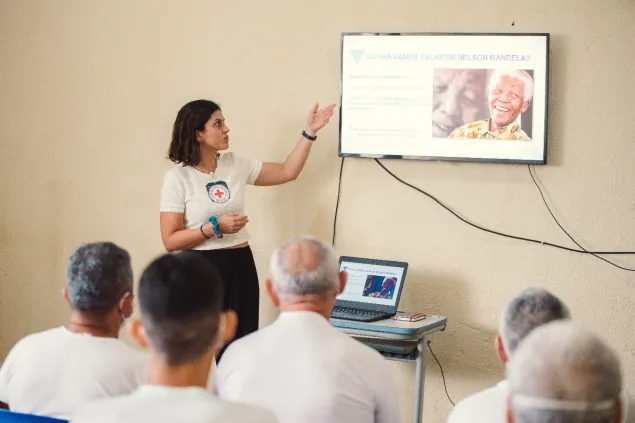
People deprived of their liberty at the Irmã Imelda Lima Pontes Prison watch a presentation about the story of Nelson Mandela, who was imprisoned in 1958 in South Africa. “The idea is to carry out a different kind of activity to provide insights into a reality that many people out there are unaware of and draw attention to it,” explains ICRC detention delegate Mariana Barbosa.
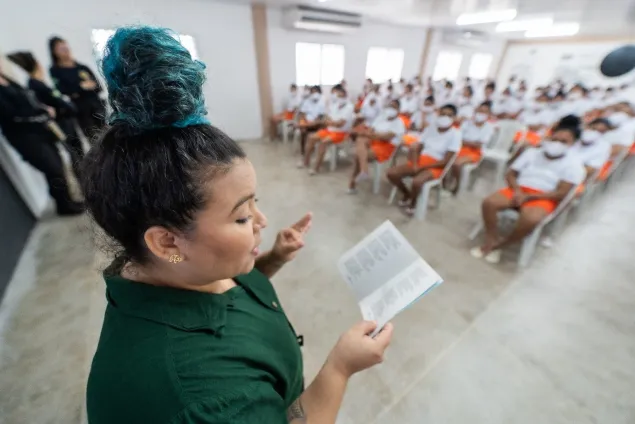
At the Auri Moura Costa Women’s Prison, Julie Oliveira, a writer of cordel literature, a popular literary genre in Brazil, reads from her chapbook A peleja do CICV nas Causas Humanitárias (the ICRC’s fight for humanitarian causes), inspired by the ICRC’s work with people deprived of their liberty.
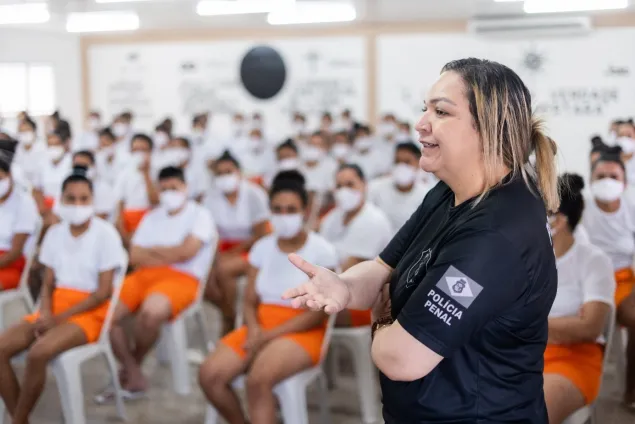
Socorro Matias, director of the Auri Moura Costa Women’s Prison, stresses the importance of gaining new knowledge through initiatives such as the Mandela Campaign. “The Prison Administration Department is devoting time and resources to ensuring we know how to treat the most vulnerable with special care. We feel greatly strengthened when we see that such an important organization is helping us and providing us with this top-notch knowledge about recommended practices.”
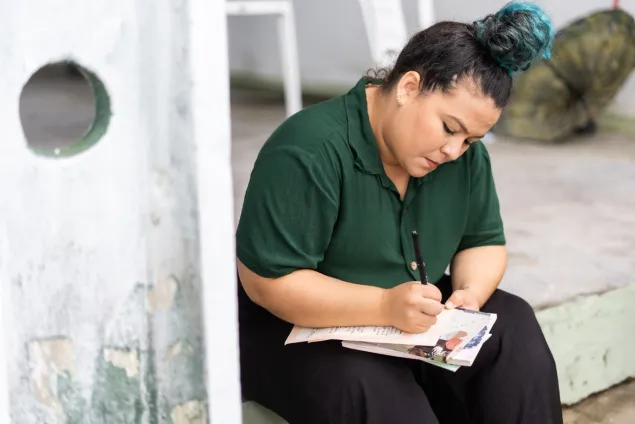
Inspired by stories about the prison community and Mandela, cordel writer Julie Oliveira penned a few lines of verse while at the Auri Moura Costa Women’s Prison.
“Let Mandela’s fight give you inspiration
Sparking in you that transformation
That you yearn to see in the world
Only this way will
Our mission we fulfil!”
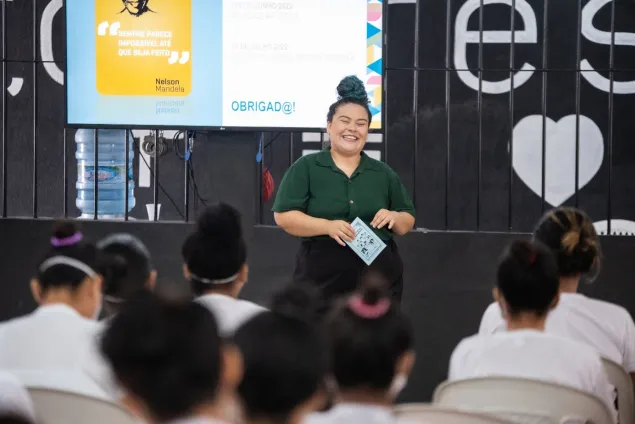
“I think the cordel chapbook played an educational role in this activity, helping to stimulate dialogue, because it presents facts the public should know in an entertaining way; but it’s also a call to those who wish to embark on the adventure of materializing and expressing thought,” comments cordel writer Julie Oliveira.
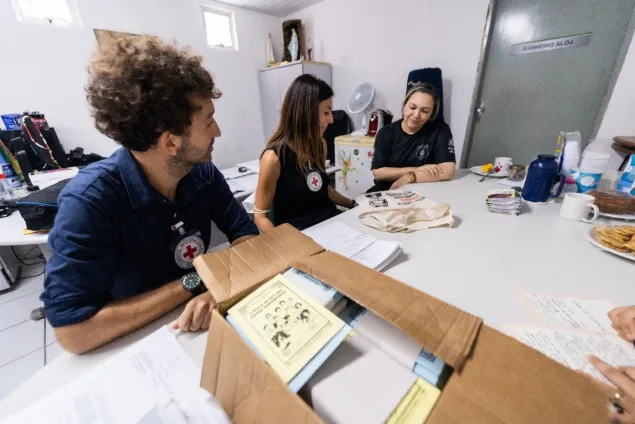
The head of the ICRC office in Fortaleza, Mario Guttilla, and the deputy protection coordinator, Patricia Badke, hand over printed copies of A Peleja do CICV nas Causas Humanitárias and leaflets on Nelson Mandela to the director of the Auri Moura Costa Women’s Prison to be distributed to the inmates’ cells so that they can read them at leisure.
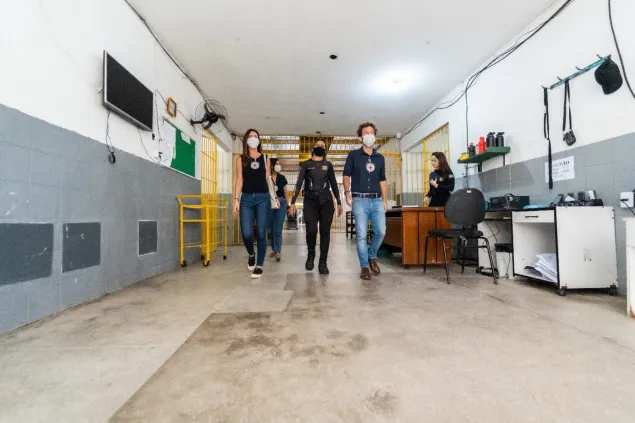
The ICRC team is welcomed by the director of the Auri Moura Costa Women’s Prison for the activity “A story about Mandela”, which is part of the initiative known as the Mandela Campaign.
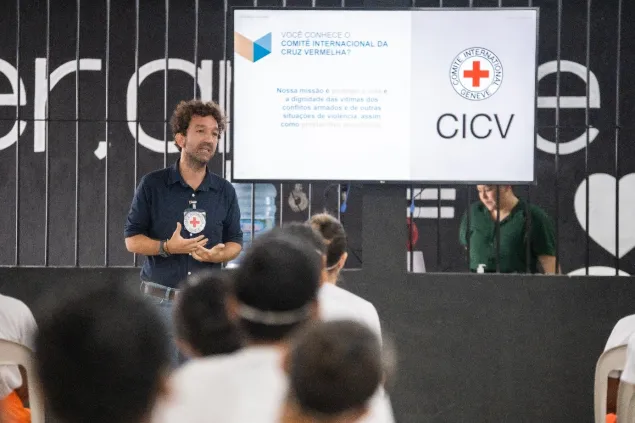
Inmates attend a presentation on the ICRC’s work in Brazil and around the world.
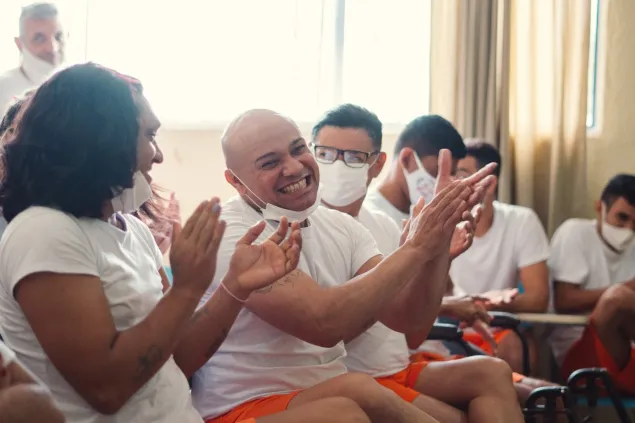
One of the inmates explains how the event held at the Irmã Imelda Lima Pontes Prison left a deep impression on him and gave him hope that he could live a different kind of life when he was released from prison. “It’s a question of humanity. Today, at this event, they came and told us about Nelson Mandela, a man of strength and purpose. It was incredibly meaningful. It really inspired me.”
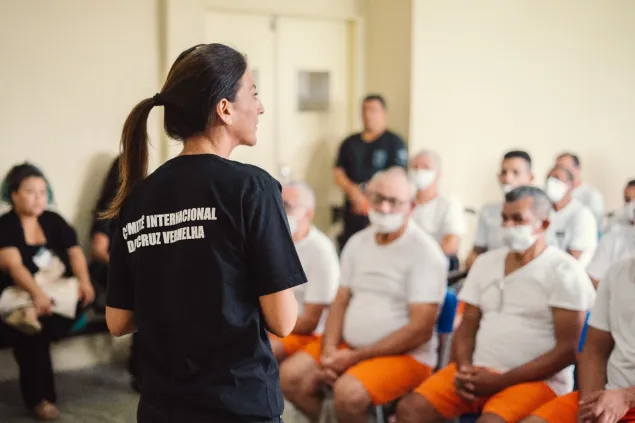
People deprived of their liberty at the Irmã Inelda Lima Pontes take part in the activity “A story about Mandela”.
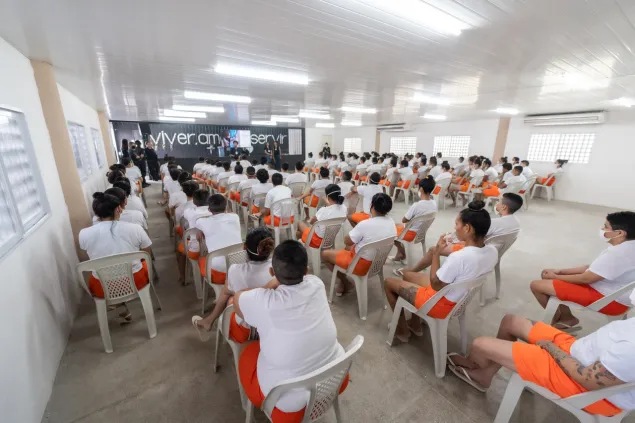
Around 200 people deprived of their liberty at the Auri Moura Costa Women’s Prison took part in the activity organized by the ICRC.
In partnership with the Ceará State Prison Administration Department, the International Committee of the Red Cross (ICRC) carried out the activity "A story about Mandela" at the Irmã Imelda Lima Pontes Prison and the Auri Moura Costa Women's Prison, as part of the campaign to promote the Nelson Mandela Rules, which are universally agreed standards that guide countries on the treatment of people deprived of their liberty.

